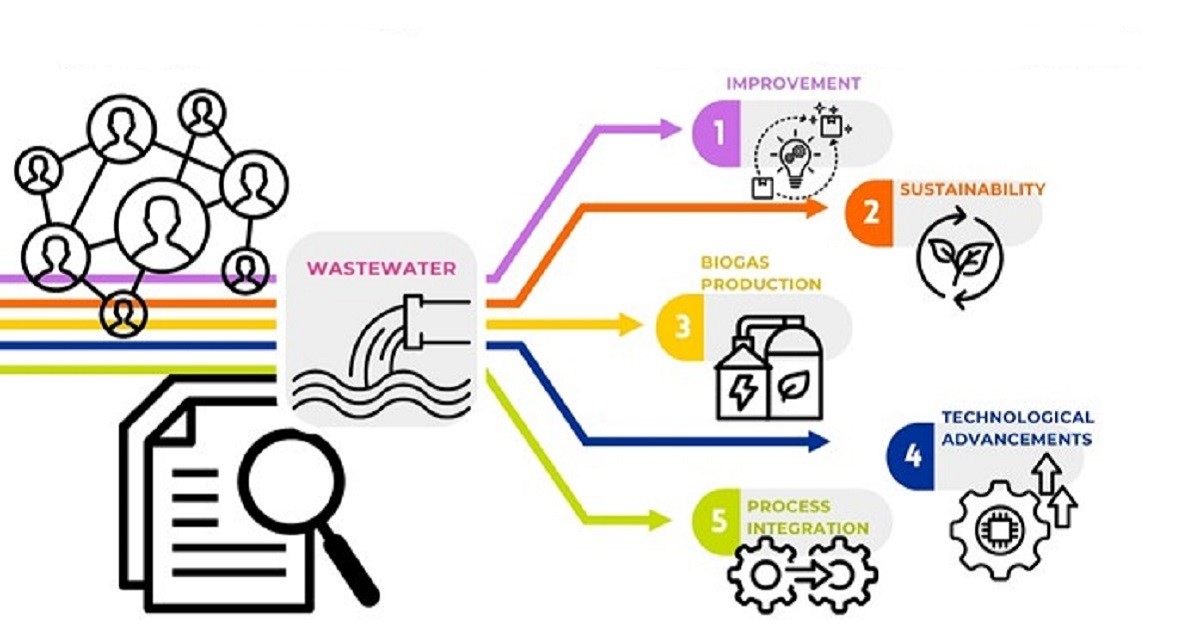Applications of Anaerobic Digestion Technology in Wastewater Treatment
A special issue of Water (ISSN 2073-4441). This special issue belongs to the section "Wastewater Treatment and Reuse".
Deadline for manuscript submissions: 20 January 2025 | Viewed by 292

Special Issue Editor
Interests: bioprocesses; anaerobic digestion; wastewater treatment; waste; energy; recovery; circular economy; sustainability
Special Issues, Collections and Topics in MDPI journals
Special Issue Information
Dear Colleagues,
This Special Issue will focus on the latest advancements in anaerobic digestion (AD) for wastewater treatment. It aims to explore innovative methodologies and technological enhancements that improve the efficiency, adaptability, and sustainability of AD processes. This Special Issue will cover innovative AD processes, effective pre-treatment techniques, supplementation strategies to boost performance, and the integration of AD into other biological systems to enhance treatment efficiency and energy use. It will also include real-world applications, technical improvements, and case studies demonstrating the practical benefits and challenges of AD technology.
The purpose of this Special Issue is to disseminate recent advancements and innovative approaches in AD technology to researchers, engineers, and practitioners in wastewater treatment. By promoting knowledge sharing and stimulating further research, we aim to facilitate the adoption of advanced AD technologies to address the increasing volume and complexity of modern wastewater.
This Special Issue will address the emerging demand for more adaptable and efficient AD processes, and the challenges faced. It will highlight technological enhancements, interdisciplinary approaches, and practical applications, providing significant contributions to the field by filling in current research gaps and promoting advanced AD technology in wastewater treatment.
Prof. Dr. Elia Judith Martínez Torres
Guest Editor
Manuscript Submission Information
Manuscripts should be submitted online at www.mdpi.com by registering and logging in to this website. Once you are registered, click here to go to the submission form. Manuscripts can be submitted until the deadline. All submissions that pass pre-check are peer-reviewed. Accepted papers will be published continuously in the journal (as soon as accepted) and will be listed together on the special issue website. Research articles, review articles as well as short communications are invited. For planned papers, a title and short abstract (about 100 words) can be sent to the Editorial Office for announcement on this website.
Submitted manuscripts should not have been published previously, nor be under consideration for publication elsewhere (except conference proceedings papers). All manuscripts are thoroughly refereed through a single-blind peer-review process. A guide for authors and other relevant information for submission of manuscripts is available on the Instructions for Authors page. Water is an international peer-reviewed open access semimonthly journal published by MDPI.
Please visit the Instructions for Authors page before submitting a manuscript. The Article Processing Charge (APC) for publication in this open access journal is 2600 CHF (Swiss Francs). Submitted papers should be well formatted and use good English. Authors may use MDPI's English editing service prior to publication or during author revisions.
Keywords
- anaerobic digestion
- wastewater treatment
- pre-treatment strategies
- biological system integration
- energy production
- biogas production
- technological advancements
Benefits of Publishing in a Special Issue
- Ease of navigation: Grouping papers by topic helps scholars navigate broad scope journals more efficiently.
- Greater discoverability: Special Issues support the reach and impact of scientific research. Articles in Special Issues are more discoverable and cited more frequently.
- Expansion of research network: Special Issues facilitate connections among authors, fostering scientific collaborations.
- External promotion: Articles in Special Issues are often promoted through the journal's social media, increasing their visibility.
- e-Book format: Special Issues with more than 10 articles can be published as dedicated e-books, ensuring wide and rapid dissemination.
Further information on MDPI's Special Issue polices can be found here.





